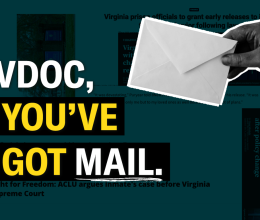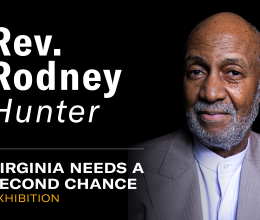 Who’s ready for a Fourth Amendment pop quiz?
Who’s ready for a Fourth Amendment pop quiz?
Imagine, if you will, the following scenario: a police officer detains you on the street admittedly without reasonable suspicion that you’ve committed a crime. The officer subjects you to a full-body pat-down under the guise of checking for weapons, and then demands to see your identification (which he’s not allowed to do constitutionally if you aren’t driving). When you produce your ID voluntarily even though not required to do so, the officer takes it and returns to his cruiser to run your info through the warrant database. When he returns, he informs you that you are now under arrest, and your entire person, including any bags you are carrying, is now subject to a probing, invasive search.
Question: Because the officer did not have reasonable suspicion to detain you in the first place, is anything found during the ensuing search admissible in court?
Answer: It depends. Did you forget to pay your traffic tickets? If so, and there’s a warrant out for your arrest, the answer is yes.
Absurd though it may sound, this is the ruling that five of our finest legal minds recently gave their blessing to this in Utah v. Strieff. The U.S. Supreme Court opinion, authored by Justice Clarence Thomas, created a new and deeply troubling loophole that allows police to dance around the usual protections of the Fourth and Fifth Amendments.[1]
The majority in Strieff held that when an officer illegally detains a person and then discovers an outstanding warrant for the person’sarrest, any evidence found during a search incident to that arrest may be used against the person in court. They reasoned that an outstanding warrant, which an officer may be blissfully unaware of before illegally detaining a person and demanding ID which the person isn’t constitutionally required to provide, is an “attenuating” circumstance that fully vindicates the unlawful detention leading to the discovery of such evidence. Essentially, finding a valid (if wholly unrelated) warrant breaks the causal connection between the illegal stop and the evidence seized because of that stop.
And yes, that warrant could be for an unpaid traffic ticket.
This ruling is troubling for a host of reasons, many of which are thoroughly outlined in Justice Sonia Sotomayor’s scalding dissent. And while much has already been said of the majority’s blind reliance on an outstanding warrant to justify an illegal detention post facto, it bears repeating just how potentially damaging this ruling could be for many of our most vulnerable communities here in Virginia.
To begin with, the Strieff majority entirely glosses over the fact that a detective not only detained and patted-down a person without reasonable suspicion, but also demanded he produce identification to be run through the warrant database. The short-term detainment and pat-down of the kind found in Strieff is lovingly known as a Terry[2] stop, and is meant to be a brief detainment of a person that an officer “reasonably suspects” has committed or is soon to commit a crime. Several states, including Utah but not including Virginia, have "stop-and-identify" statutes that empower officers to demand that a person identify himself or herself during a valid Terry stop[3] but even these statutes constitutional cannot require a non-driver to produce ID or provide any additional information beyond a name, like an address or birthdate. But the stop at issue in Strieff was not valid – it was not supported by reasonable suspicion and was, by the detective's own admission, illegal. The majority did not endeavor to explain why this was (apparently) a non-issue.
Nor did the majority make clear why running a warrant check during a temporary detention is in any way necessary or legal. A pat-down check for weapons and brief questioning are normal, but running a warrant check during a pedestrian Terry stop has never been a matter of course. The court cited its own decision in Rodriguez v. United States to characterize a warrant check as a “negligibly burdensome precaution” to ensure officer safety.[4]
Their reliance on Rodriguez falls a bit flat, however, when placed in its proper context. The full quote from which the "negligibly burdensome" language was taken reads: "Traffic stops are 'especially fraught with danger to police officers,' so an officer may need to take certain negligibly burdensome precautions in order to complete his mission safely."[5] Strieff, of course, had nothing to do with a traffic stop. The connection to officer safety is, to use the court’s term, attenuated. In this case, Mr. Strieff had already been detained and patted down; it is not clear how checking for outstanding warrants is a further “safety” precaution, and the Court's precedents do not provide any guidance.
The sum total is this: a man was stopped and detained illegally, ordered to produce identification illegally, and his identification was run through the warrant database - you guessed it - illegally. But the majority skated right by all of these illegal acts and hung their hat entirely on Strieff having a warrant out for his arrest, which in their view made the prior unconstitutional acts by the detective irrelevant.
The court’s faith in warrants is wholly misplaced. Warrants can be issued for many reasons, not all of which point to criminal activity. Warrants can be issued for unpaid court fines or child support. Such warrants are commonplace, especially in lower-income areas. The situation is even more precarious in Virginia, where our laws allow any person to go before a magistrate and swear out a warrant for someone else’s arrest. Warrants for felonies require approval of the Commonwealth’s attorney, but misdemeanor warrants do not. With warrants being so pervasive and easy to acquire, the potential for abuse under this ruling is substantial.
During oral arguments, Justice Sotomayor and Justice Elena Kagan questioned counsel for the state of Utah about how this practice would affect communities like Ferguson, Mo. After its investigation, the U.S. Department of Justice found that 80 percent of the population had outstanding warrants, mostly for minor traffic offenses. If four out of every five people have a warrant, then why not just roll the dice and stop anyone and everyone without cause? Chances are police will find something that will excuse their actions.
The response from counsel was ultimately adopted by the majority, and it shows a clear disconnect between the bench and the reality on the ground. They reasoned that such “dragnet” searches were “unlikely” because this would “expose police to civil liability,” and that evidence could still be suppressed if a judge found the stop to be “flagrant.” [6]
The court’s reasoning is naïve. While it is true that civil liability is possible, qualified immunity (which tips the scales of justice in favor of police) makes recovery unlikely for the average plaintiff, even with sophisticated counsel. In any event, civil actions are not a replacement for suppressing illegally-obtained evidence – the possibility of a civil action does not have the deterrent effect that suppression is meant to impose, and it does nothing to keep a person who has been unlawfully detained and searched from going to jail.
A line of cases stretching back to the 1920s espouse the principle that the only proper means to deter unconstitutional police practices is to render such practices pointless, and this is best done by making illegally-obtained evidence inadmissible in court. The Strieff decision sends just the opposite message by not only failing to deter unconstitutional policing, but arguably encouraging it. Rather than stopping police from violating our Fourth and Fifth Amendment rights, the Strieff majority have drawn police a roadmap around them.
With the ruling in Strieff, the court has again lost its way in its reading of the Fourth Amendment. Perhaps, a few years down the road, those justices in the majority will be confronted with a new case, one demonstrating the awful ramifications that Justice Sotomayor predicts their decision will have on the already fragile relationship between citizens and police. If that day comes, one might hope they would change course and rethink the reasoning underlying this decision. Until then, however, remember: pay your fines and court fees and work with the ACLU of Virginia on changing state law to provide the protections against unreasonable searches and seizures you thought that the Fourth Amendment already provided.
NEW
Virginia Students Sue DoDEA schools over curriculum changes






